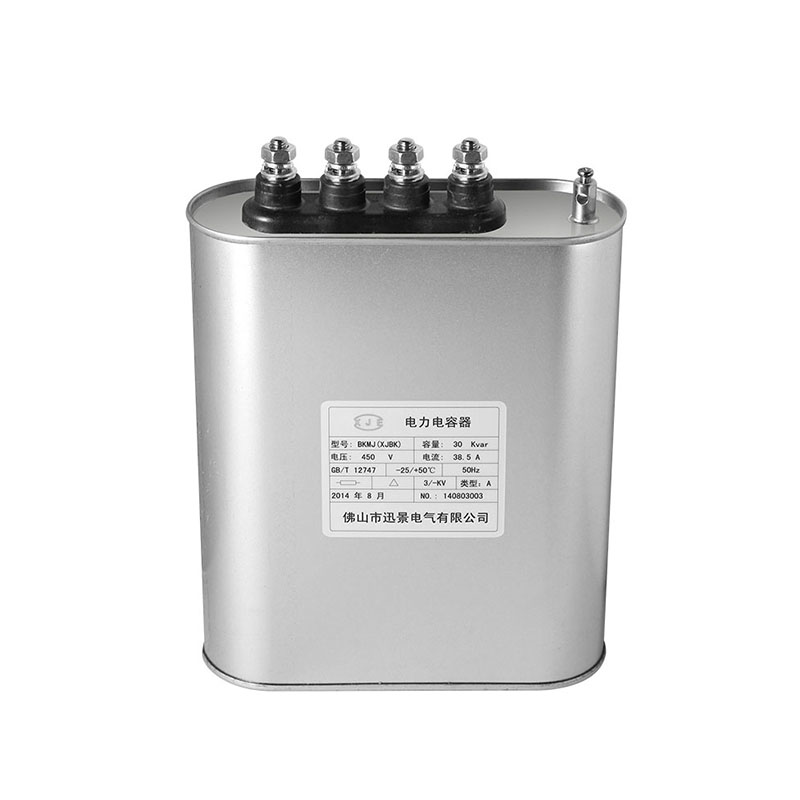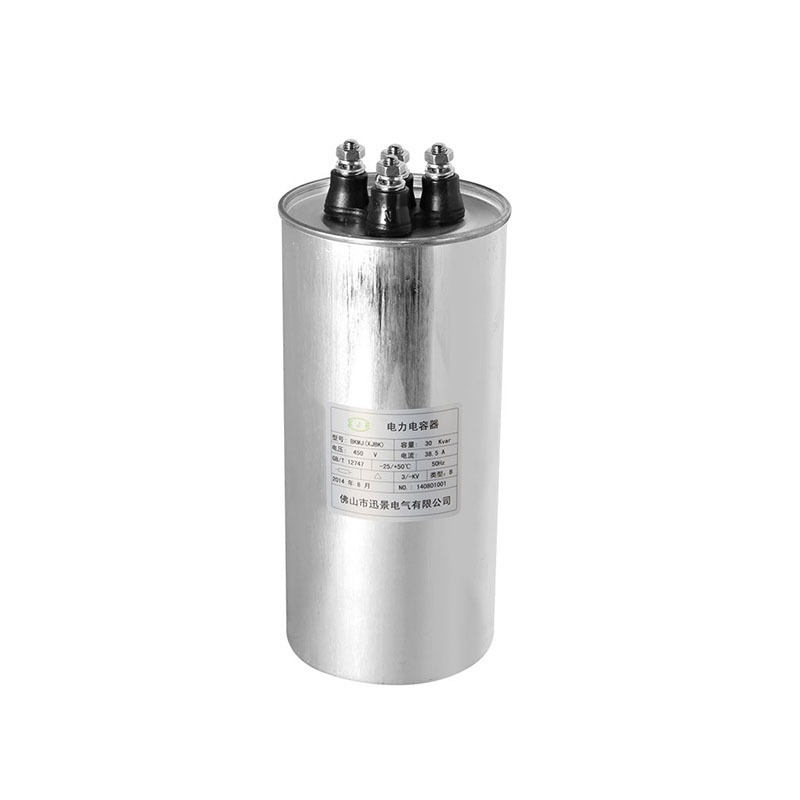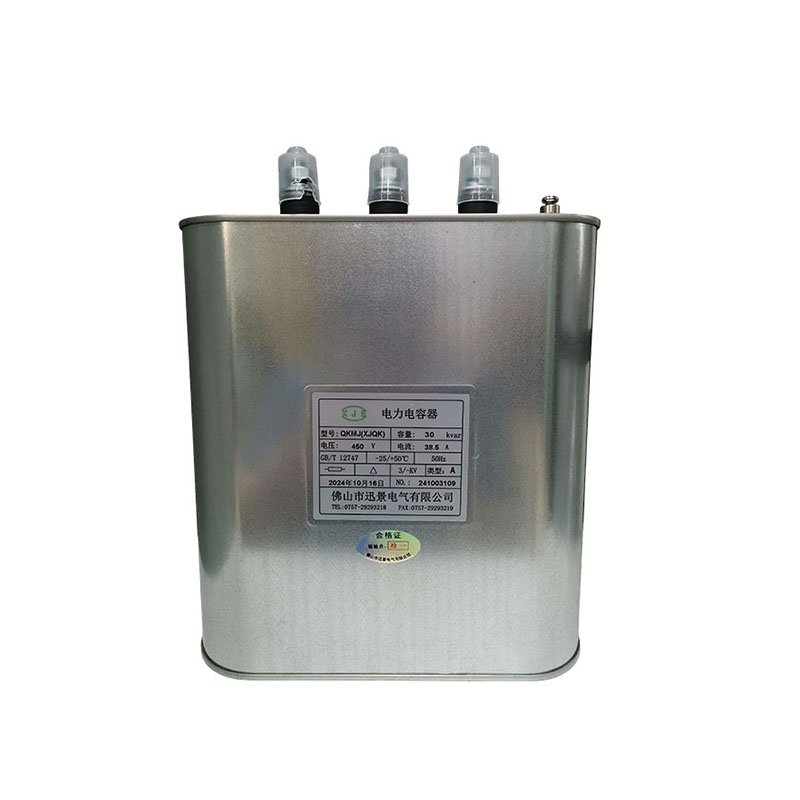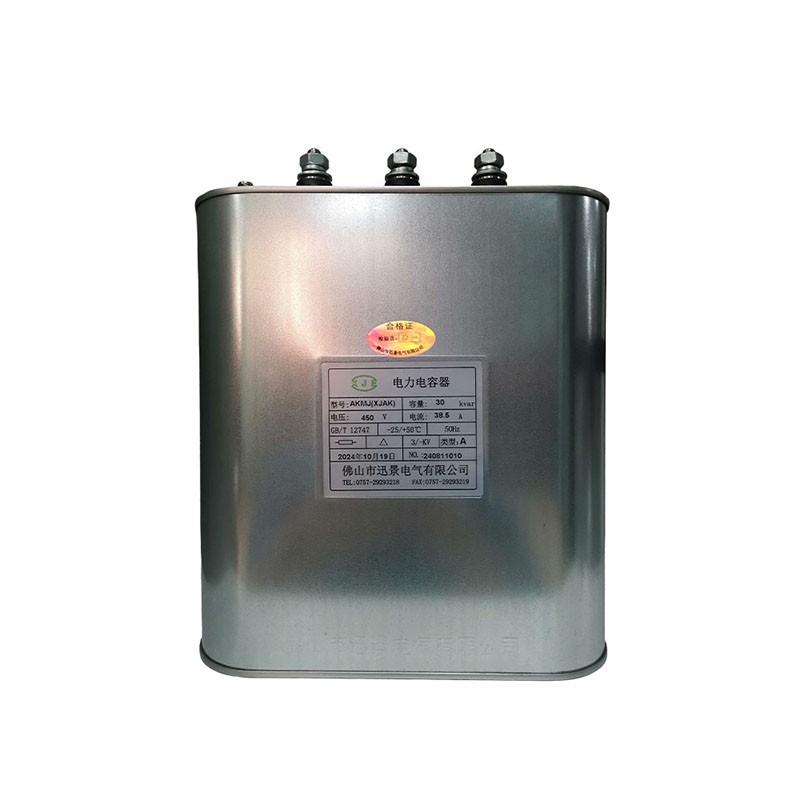What kind of vital role do power capacitors play in power transmission and distribution?
Release Time : 2024-11-22
In power transmission and distribution systems, power capacitors play a vital role, and their role is mainly reflected in the following aspects:
1. Reactive power compensation
The loads in the power system (such as motors, transformers, etc.) usually generate inductive reactive power, which will cause the power factor of the power grid to decrease, increase energy loss and voltage fluctuations. Power capacitors can offset the inductive reactive power by providing capacitive reactive power, thereby improving the power factor of the system (i.e., increasing the cosφ value). This not only reduces power loss, but also improves the efficiency of the power grid.
2. Voltage regulation and stability
Power capacitors can be used for voltage regulation in power systems. By installing capacitors at appropriate locations, the voltage distribution of the power grid can be improved to prevent voltage fluctuations and drops. Especially in long-distance transmission lines, capacitors can maintain the voltage within a reasonable range by compensating for the reactive power demand of the line, ensuring the stability of the power supply.
3. Improve power transmission capacity
By installing power capacitors, reactive power transmission in the transmission line can be reduced, thereby reducing the current and voltage drop of the line. This means that under the same voltage and current limits, the power grid can transmit more active power, improving the power transmission capacity. This is particularly important for meeting the rapidly growing power demand.
4. Reduce power grid losses
The reactive power in the power system will lead to an increase in resistive losses in the power grid. Through reactive power compensation, power capacitors can reduce this part of the loss, thereby saving energy and reducing operating costs. According to statistics, the rational use of power capacitors can significantly reduce the loss of the power grid.
5. Harmonic filtering
In modern power systems, nonlinear loads (such as power electronic equipment) generate harmonic currents that interfere with the normal operation of the power system. Power capacitors are usually used in combination with other devices (such as reactors) to form harmonic filters to filter out harmonic currents and improve power quality.
6. Optimize the distribution system
In the distribution system, power capacitors can optimize voltage distribution, reduce voltage fluctuations, and improve the power quality of end users. In addition, power capacitors can also be used to adjust the reactive power distribution in the distribution network and optimize the system operation efficiency.
7. Improve spare capacity
Through reactive power compensation, power capacitors can help the power grid better manage reactive power, thereby releasing more active power transmission capacity. This improves the spare capacity of the power grid and increases the ability to cope with sudden loads and faults.
8. Environmental protection
The use of power capacitors can reduce reactive power transmission in the power grid, thereby reducing the power generation demand of power plants, and thus reducing greenhouse gas emissions and other pollutant emissions. This is of great significance for environmental protection and sustainable development.
In summary, power capacitors play a vital role in power transmission and distribution systems. They ensure the stable, efficient and economical operation of the power system through reactive power compensation, voltage regulation, improving power transmission capacity, reducing grid losses, harmonic filtering, optimizing distribution systems, improving spare capacity and environmental protection.
1. Reactive power compensation
The loads in the power system (such as motors, transformers, etc.) usually generate inductive reactive power, which will cause the power factor of the power grid to decrease, increase energy loss and voltage fluctuations. Power capacitors can offset the inductive reactive power by providing capacitive reactive power, thereby improving the power factor of the system (i.e., increasing the cosφ value). This not only reduces power loss, but also improves the efficiency of the power grid.
2. Voltage regulation and stability
Power capacitors can be used for voltage regulation in power systems. By installing capacitors at appropriate locations, the voltage distribution of the power grid can be improved to prevent voltage fluctuations and drops. Especially in long-distance transmission lines, capacitors can maintain the voltage within a reasonable range by compensating for the reactive power demand of the line, ensuring the stability of the power supply.
3. Improve power transmission capacity
By installing power capacitors, reactive power transmission in the transmission line can be reduced, thereby reducing the current and voltage drop of the line. This means that under the same voltage and current limits, the power grid can transmit more active power, improving the power transmission capacity. This is particularly important for meeting the rapidly growing power demand.
4. Reduce power grid losses
The reactive power in the power system will lead to an increase in resistive losses in the power grid. Through reactive power compensation, power capacitors can reduce this part of the loss, thereby saving energy and reducing operating costs. According to statistics, the rational use of power capacitors can significantly reduce the loss of the power grid.
5. Harmonic filtering
In modern power systems, nonlinear loads (such as power electronic equipment) generate harmonic currents that interfere with the normal operation of the power system. Power capacitors are usually used in combination with other devices (such as reactors) to form harmonic filters to filter out harmonic currents and improve power quality.
6. Optimize the distribution system
In the distribution system, power capacitors can optimize voltage distribution, reduce voltage fluctuations, and improve the power quality of end users. In addition, power capacitors can also be used to adjust the reactive power distribution in the distribution network and optimize the system operation efficiency.
7. Improve spare capacity
Through reactive power compensation, power capacitors can help the power grid better manage reactive power, thereby releasing more active power transmission capacity. This improves the spare capacity of the power grid and increases the ability to cope with sudden loads and faults.
8. Environmental protection
The use of power capacitors can reduce reactive power transmission in the power grid, thereby reducing the power generation demand of power plants, and thus reducing greenhouse gas emissions and other pollutant emissions. This is of great significance for environmental protection and sustainable development.
In summary, power capacitors play a vital role in power transmission and distribution systems. They ensure the stable, efficient and economical operation of the power system through reactive power compensation, voltage regulation, improving power transmission capacity, reducing grid losses, harmonic filtering, optimizing distribution systems, improving spare capacity and environmental protection.







